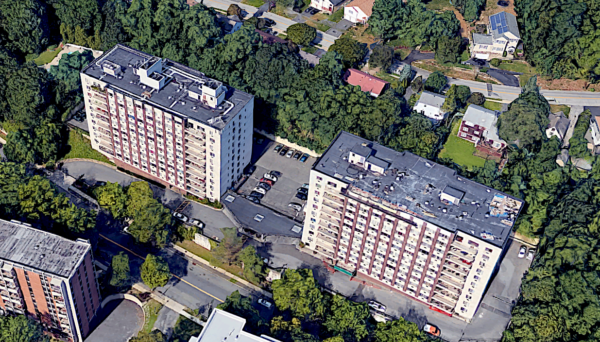The Building and Realty Institute of Westchester and the Mid-Hudson Region (BRI) is raising concerns that landlords are going to be hurt by what it sees as the inadequate rent increase given preliminary approval by the Westchester County Rent Guidelines Board. Final approval is expected when the board meets in September.
The Rent Guidelines Board approved an increase of 2% in rents for one-year leases and 3% for two-year leases in rent-stabilized buildings starting Oct. 1 through Sept. 30, 2023. The vote of the board was five in favor and three against.
The BRI, based in Armonk, has more than 1,800 members in 14 counties in New York state. Among its members are owners of multifamily apartment buildings, home builders, commercial builders, property managing agents and co-op and condo boards. The president of the organization is Lisa DeRosa.
DeRosa also is president of DeRosa Builders, a family-owned developer and real estate management firm that was established in 1957. DeRosa owns and operates a number of multifamily properties, including Stepping Stones on Lake Street in White Plains.

The BRI points out that the 2% or 3% increases fall far short of inflation that recently has been at more than 8%. The BRI also notes that price hikes caused by supply chain shortages and the lingering effects of the pandemic continue on top of inflation. It cites the National Association of Home Builders as reporting the cost of building materials has gone up 19.2% in the past year and 35.6% since March 2020. Lumber costs are up 60.4% since September 2021.
The BRI also points out that heating oil prices in Westchester have gone up 71% from April 2021 to April 2022 and were reported at more than $5.15 a gallon. The BRI also cites the U.S. Energy Information Administration as estimating a 3.9% increase in the price of electricity over the summer while Con Ed suggests it could be 15%. Insurance costs have doubled in the past few years, the BRI says.
DeRosa said that buildings affected by the rent-stabilization regulations were built before 1974 and represent the oldest segment of the multifamily housing stock in Westchester.
“We”™re being choked by the guidelines. We”™ve really been struggling for quite a few years and to come out of the pandemic and face an 8% inflation rate and be given guidelines of 2% and 3% is a joke,” DeRosa told the Business Journals. “We”™ve been getting abnormally low increases for the past few years.”
DeRosa explained that last year no rent increase was allowed and the year before that it was only one-half of one percent.
“Buildings need a lot of repairs,” DeRosa said. “I”™ve had to replace steel beams in my buildings to keep the structure safe. We live in New York: there”™s humidity; there”™s snow; there”™s rain; there”™s a lot of weather that affects the physical aspects of our properties and we need to maintain them and if we don”™t have the funds to maintain them you”™re going to look at disastrous situations.”
DeRosa said that the landlords going before the Rent Guidelines Board were not large corporations.
“We don”™t go in there in suits with our counsel and our corporate staff,” DeRosa said. “We”™re hands-on landlords that know our tenants, that know our buildings, that are in our buildings and we”™re the heart and soul of our community. We create housing and we create jobs. Why would you want to hurt an organization that creates housing?”
DeRosa said that without adequate cash coming in, landlords are unable to properly maintain their buildings and that hurts tenants. She said that various aspects of buildings from roofs to parking lots to elevators need proper maintenance.
“I don”™t think that the Rent Guidelines Board is knowledgeable enough in our field,” DeRosa said. “I don”™t think they understand the concept of depreciation. Depreciation is not a phantom number. If you have a building and you spent $30,000 on a roof, you don”™t get to deduct that in the first year. That gets depreciated over 30 years. They believed that landlords were making a 40% return. If we were making a 40% return we wouldn”™t be there asking for 3% or 8%. If you”™re making 40%, 2% or 3% or 5% is not going to make a huge difference.”
DeRosa said that about 25 landlords appeared at hearings by the Rent Guidelines Board versus three tenants who spoke to the board.
“One of the tenants spoke in favor of landlords receiving an increase because she wanted a safe building that is well-maintained,” DeRosa said, adding that she doesn”™t believe the board, having taken a vote to go ahead with the 2% and 3% increases, can be convinced to modify those amounts when it takes a final vote.




















